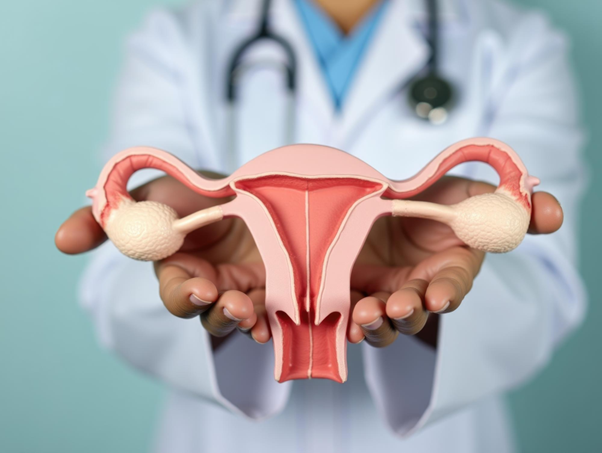When it comes to fertility, one of the most important factors that women should consider is ovarian reserve. Ovarian reserve refers to the number and quality of eggs a woman has in her ovaries, and it directly affects her ability to conceive. The concept of ovarian reserve is central to understanding fertility, especially as women age. A woman’s ability to get pregnant is often tied to the health of her ovarian reserve, which can change over time due to factors such as age, genetics, and lifestyle.
In this blog, we will explore what ovarian reserve is, how it can be measured, and why it’s so important for fertility. By understanding ovarian reserve, women can make more informed decisions about family planning, fertility treatments, and reproductive health.
What Is Ovarian Reserve?
Ovarian reserve refers to the quantity and quality of a woman’s eggs (oocytes) present in her ovaries. From the time a woman is born, she has all the eggs she will ever have. At birth, a woman’s ovaries contain about 1 to 2 million eggs. However, by the time she reaches puberty, that number has already decreased to around 300,000 to 500,000. As a woman continues to age, the number of eggs decreases, and the quality of those remaining eggs also diminishes.
Ovarian reserve is crucial for fertility because it directly influences the chances of successful conception. A higher ovarian reserve means that a woman has more eggs available for fertilization, which increases the likelihood of pregnancy. As a woman’s reserve declines, it may become more difficult to conceive, and the chances of miscarriage may increase.
Why Ovarian Reserve Matters for Fertility
Ovarian reserve is a key indicator of a woman’s reproductive health. As women age, the number and quality of their eggs naturally decline. By the age of 30, a woman’s fertility begins to decline, and after the age of 35, the decline becomes more pronounced. This is why ovarian reserve plays such a significant role in fertility—if a woman has a low ovarian reserve, it can make it harder for her to get pregnant, even with assisted reproductive technologies (ART) like in vitro fertilization (IVF).
It is important to note that ovarian reserve is just one factor in fertility. While a woman with a low ovarian reserve may face challenges in conceiving, other factors such as the health of the fallopian tubes, sperm quality, and hormonal balance can also affect fertility. Ovarian reserve is a useful indicator, but it doesn’t determine a woman’s overall ability to conceive on its own.
How Is Ovarian Reserve Assessed?
Healthcare providers use a variety of tests to assess ovarian reserve. These tests measure both the quantity and the quality of a woman’s eggs, providing valuable insight into her fertility potential. Some of the most common tests for assessing ovarian reserve include:
- AMH (Anti-Müllerian Hormone) Test
- AMH is a hormone produced by the follicles in the ovaries, and its levels can indicate the number of eggs a woman has. High AMH levels suggest a higher ovarian reserve, while low levels point to a reduced reserve. The AMH test is easy to administer through a simple blood test and can be done at any time during the menstrual cycle.
- FSH (Follicle-Stimulating Hormone) Test
- FSH is a hormone that helps stimulate the ovaries to produce eggs. Higher levels of FSH, especially on the third day of a woman’s menstrual cycle, can indicate that the ovaries are not responding well to the hormone, which may be a sign of reduced ovarian reserve. This test is also done through a blood draw.
- Antral Follicle Count (AFC)
- Antral follicles are small follicles that contain immature eggs. These follicles can be seen using ultrasound, and the number of antral follicles in the ovaries is often used to estimate ovarian reserve. A higher antral follicle count generally correlates with a better ovarian reserve.
- Ovarian Ultrasound
- An ultrasound can be used to count the antral follicles in the ovaries, which is a key indicator of ovarian reserve. This test is typically done at the beginning of the menstrual cycle to determine the number of follicles present.
- Ovarian Biopsy (Rarely Done)
- While not commonly performed, an ovarian biopsy may be done in certain cases to assess ovarian health and egg quality. This is typically reserved for specific situations like premature ovarian failure.
Factors That Affect Ovarian Reserve
Several factors can influence a woman’s ovarian reserve, and while some are beyond control, others can be managed or minimized. The most common factors that affect ovarian reserve include:
- Age
- Age is the most significant factor affecting ovarian reserve. As women get older, the number of eggs in their ovaries decreases, and the remaining eggs may be of lower quality. This is why fertility declines as women age, with a sharp drop in fertility rates after the age of 35.
- Genetics
- A woman’s genetic makeup can play a role in determining the age at which her ovarian reserve starts to decline. If a woman’s mother or sister experienced early menopause, she may be at a higher risk of having a low ovarian reserve.
- Medical Conditions
- Certain medical conditions can impact ovarian reserve. For example, conditions like polycystic ovary syndrome (PCOS), endometriosis, and thyroid disorders can all influence a woman’s fertility. Additionally, autoimmune diseases or diseases like diabetes can also affect ovarian function.
- Chemotherapy and Radiation
- Women who have undergone chemotherapy or radiation for cancer treatment may experience damage to their ovaries, leading to a reduced ovarian reserve. These treatments can harm the quality and quantity of eggs.
- Lifestyle Factors
- Lifestyle choices such as smoking, excessive alcohol consumption, and a poor diet can have a negative impact on ovarian reserve. Smoking, in particular, has been shown to accelerate the decline of ovarian reserve and negatively affect egg quality.
Can Ovarian Reserve Be Improved?
While there is no guaranteed way to increase ovarian reserve once it has declined, there are steps that women can take to protect their fertility. Lifestyle changes such as eating a balanced diet, maintaining a healthy weight, and avoiding smoking can help preserve ovarian health. Some women may choose to freeze their eggs if they are not ready to have children but want to preserve their fertility for the future. This can be an option for women who want to delay childbearing or who have medical conditions that might affect their fertility.
What Does Low Ovarian Reserve Mean for Fertility?
Having low ovarian reserve means that a woman has fewer eggs available for fertilization, which can make it harder to conceive. It doesn’t necessarily mean that pregnancy is impossible, but it can reduce the chances of a successful pregnancy, both naturally and with assisted reproductive technologies like IVF. Women with low ovarian reserve may also be at a higher risk of miscarriage.
If ovarian reserve is low, fertility treatments like egg donation or IVF with donor eggs may be options. Women with low ovarian reserve may also benefit from working closely with a fertility specialist who can help determine the best course of action.
Ovarian reserve is a critical factor in a woman’s fertility. Understanding how ovarian reserve works, how to assess it, and what factors influence it can empower women to make informed decisions about their reproductive health. While age plays a central role in ovarian reserve, genetics, medical conditions, and lifestyle choices can also have a significant impact. If you’re concerned about your fertility or ovarian reserve, it’s essential to talk to a healthcare provider who can guide you through the process and help you make the best choices for your future.
Are you curious about your ovarian reserve or fertility options? Don’t wait! Schedule a consultation with our fertility specialist today to learn more about how you can protect your reproductive health and make informed decisions about your future. Take control of your fertility—your future self will thank you!



